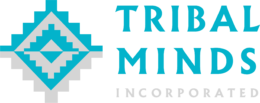There are many organizations working at the uplifting and empowerment of Black, Indigenous, and People of Color's communities in both urban and rural areas. There is one problem, though: the white savior complex.
For Indigenous people, the white savior complex is the set of norms wherein white people - possessing the resources - adopt a mindset where they view the "saving" of Indigenous communities as their responsibility. These people view themselves as the keepers of knowledge and intelligence, the guardians of the way forward, speaking over Indigenous people instead of working with us. White saviors are not unfamiliar to Indigenous people. Everything from white-led nonprofits creating and administering programs on reservations to missionary work by white churches are examples of the white savior complex.
Whether or not white people realize it or not, the white savior complex inherently presents the white savior as superior and the Indigenous person as inferior. Activists with Indigenous Action note several kinds of white saviorism: salvation, co-optation, confessional, parachuters, academics, gatekeepers, and navigators.
Salvation is when people with power view Indigenous people as victims alone.
Co-optation occurs when people with power advance their own self-interests on Indigenous people's backs, without benefiting our communities in any way, and confessionals are people who view their support for us as an extracurricular activity to earn points for.
Parachuters are not committed to the People and the Land; rather, they are committed to being at the front of whatever cause celebre is the rage of the moment.
Academics can be just as patronizing, which is why Vine Deloria Jr. spends a considerable amount of time dismissing the anthropologists who use Indigenous people as their case studies with no commitment to liberation.
Gatekeepers seek power over us even as they come from outside.
Navigators are familiar with our spaces and struggles but avoid meaningful action outside of their own comfort zones, avoiding directly targeting the people in power.
The shared commonality across all of these examples of the white savior complex is a lack of interest in dismantling existing systems of power. It's good intentions, but bad impact. It's allies, but not accomplices. It's conversation, but no dialogue. Unfortunately, the traditional model for community development is based on and created in the context of the white savior complex.
Tribal Minds, Inc. has no interest in abiding by that model. As an Indigenous-led nonprofit, we are committed to the People and the Land by centering the strengths and visions of our own communities - and transforming our fate, together.

